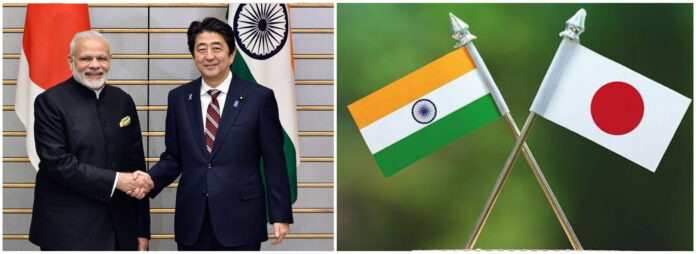In the complex landscape of global security, the cooperation between nations holds paramount significance. Among the nations that actively engage in discussions and collaborations to address global security challenges are India and Japan. Both nations, with their growing influence and commitment to peace, have embarked on a journey to explore advancements in disarmament and non-proliferation efforts. This collaborative endeavor not only reflects their shared values but also underscores their dedication to fostering stability and security in the region and beyond.

Historical Context
India and Japan share a history of diplomatic relations marked by mutual respect and cooperation. Over the years, both countries have recognized the importance of maintaining peace and stability in the Asia-Pacific region, which has witnessed significant geopolitical shifts and security challenges. Against this backdrop, their engagement in discussions on disarmament and non-proliferation is rooted in a shared commitment to upholding international norms and promoting a world free from the threats posed by weapons of mass destruction.
Strategic Dialogue
The strategic dialogue between India and Japan serves as a crucial platform for discussing a wide range of security issues, including disarmament and non-proliferation. Through these dialogues, both countries exchange perspectives, share best practices, and explore avenues for collaboration in enhancing global security architecture. The regularity and depth of these interactions underscore the seriousness with which India and Japan approach issues related to disarmament and non-proliferation.
Common Goals and Challenges
While India and Japan come from distinct geopolitical contexts, they converge on many fronts when it comes to disarmament and non-proliferation. Both nations recognize the imperative of preventing the proliferation of weapons of mass destruction and promoting responsible behavior among states. Additionally, they share concerns about the potential consequences of nuclear proliferation, especially in regions marked by instability and conflict. By aligning their efforts, India and Japan aim to contribute meaningfully to global disarmament initiatives and strengthen the non-proliferation regime.
Regional Dynamics
The Asia-Pacific region, with its diverse array of security challenges, remains a focal point for India and Japan’s collaborative efforts in disarmament and non-proliferation. As countries in the region grapple with various security threats, including nuclear proliferation and maritime tensions, India and Japan seek to promote dialogue, confidence-building measures, and capacity-building initiatives to enhance stability and security. By working together and with other like-minded partners, they strive to shape a regional security architecture based on principles of inclusivity, transparency, and respect for international law.
Areas of Collaboration
India and Japan explore multiple avenues for collaboration in the realm of disarmament and non-proliferation. This includes cooperation in forums such as the United Nations, where both countries actively participate in discussions on arms control, disarmament treaties, and non-proliferation initiatives. Furthermore, India and Japan engage in bilateral exchanges to share expertise, technology, and best practices in areas such as nuclear safety, export controls, and disarmament verification. Such collaboration not only enhances the capabilities of both nations but also contributes to the broader goal of strengthening the global disarmament architecture.
ConclusionThe exploration of advancements in disarmament and non-proliferation by India and Japan underscores their commitment to promoting peace, security, and stability at the regional and global levels. Through strategic dialogue, shared goals, and collaborative efforts, both nations seek to address the complex challenges posed by weapons of mass destruction and contribute to the realization of a world free from the threat of nuclear proliferation. As responsible stakeholders in the international community, India and Japan continue to play a proactive role in shaping a safer and more secure world for future generations.






















